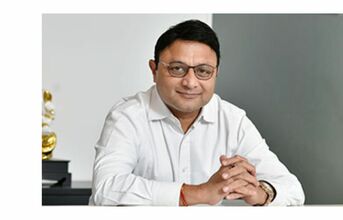
EPACK Durable's strategic combination of backward integration, strong research and development capabilities, and partnerships with well-known brands like Voltas, Bluestar, Lloyd, Haier, and Godrej have garnered them significant growth. By manufacturing essential components in-house, such as printed circuit boards (PCBs) and heat exchangers, the company has achieved cost efficiency and stringent quality control. According to Ajay DD Singhania, the Managing Director and CEO of EPACK Durable, "Our continuous investment in technology and state-of-the-art facilities further enhances our operational efficiency."
Looking ahead, the company plans to diversify into both large and small domestic appliances as it expands its international presence while maintaining a steadfast commitment to innovation and sustainability. Currently, cooling solutions make up 80 per cent of EPACK Durable's revenue. However, as the company moves into larger appliances, its strategy will leverage existing manufacturing expertise.
Singhania explains, "Our infrastructure and facilities are designed for flexibility, allowing us to extend our capabilities to new product lines such as washing machines and small domestic appliances." This strategy ensures the seamless integration of backward integration principles across diverse offerings. Additionally, the company intends to enhance its component business to improve capacity utilisation, ensuring sustainable growth across its expanding portfolio. EPACK Durable's extensive manufacturing network, spanning Dehradun, Bhiwadi, and Sri City, plays a pivotal role in maintaining a seamless supply chain across India. Each facility is strategically located to serve specific regions, ensuring efficient logistics and timely deliveries. "Our northern plants in Dehradun and Bhiwadi cater to North and Central India, while Sri City serves the South, West, and export markets," Singhania notes.
The company's component manufacturing business has also emerged as a significant growth driver, thanks to its unique backward integration model, which consolidates all production at a single site. Unlike competitors with more fragmented operations, EPACK Durable produces key components—including PCBs, heat exchangers, plastic moulding, sheet metal, copper tubing, and motor in-house. "This setup not only reduces dependency on external suppliers but also allows us to maintain tighter control over costs, quality, and delivery timelines," Singhania states. A major step in this direction has been the company's decision to increase its stake in the joint venture with Epavo, raising it from 26 per cent to 50 per cent. This move has strengthened its motor production capabilities, reinforcing its competitive edge. Furthermore, the company plans to expand its components business through market diversification, strategic alliances, and enhanced marketing initiatives.
EPACK Durable's vertical integration strategy has profoundly enhanced its operational efficiency by enabling the company to control nearly 70 per cent of its component production in-house. This approach streamlines workflows, reduces lead times, and ensures stringent quality standards while minimising reliance on third-party suppliers. "By manufacturing key components internally, we create an additional revenue stream by supplying components to other brands," says Singhania. This not only maximises resource utilisation but also allows the company to respond swiftly to market demands.
As India strengthens its push for self-reliance in manufacturing, EPACK Durable remains firmly aligned with national initiatives such as ‘Make in India' and the Production-Linked Incentive (PLI) scheme. "The 10th anniversary of ‘Make in India' is a testament to the impact of these initiatives on manufacturing, empowering both large and small enterprises," Singhania observes. The company continues to leverage government support to scale operations, particularly in the RAC and component segments, with a focus on reducing import dependency and fostering a robust domestic supply chain. This commitment not only bolsters EPACK Durable's own growth but also contributes to India's ambition of becoming a global manufacturing powerhouse.
Technology, particularly AI and automation, lies at the heart of EPACK Durable's manufacturing excellence. The company's cutting edge R&D facilities, including advanced test labs, enable continuous innovation. "A prime example of this is our introduction of 5mm copper tubing in heat exchangers for room air conditioners, which reduced weight and resulted in significant cost savings, earning us the prestigious Copper Excellence Award," Singhania highlights. The company's vertically integrated manufacturing model further optimises efficiencies by producing key components in-house, reducing transportation costs, and ensuring seamless coordination across production lines.
Looking ahead, EPACK Durable envisions deeper AI integration and expanded automation in its processes, allowing it to remain agile in a dynamic market while maintaining its commitment to quality and efficiency.
